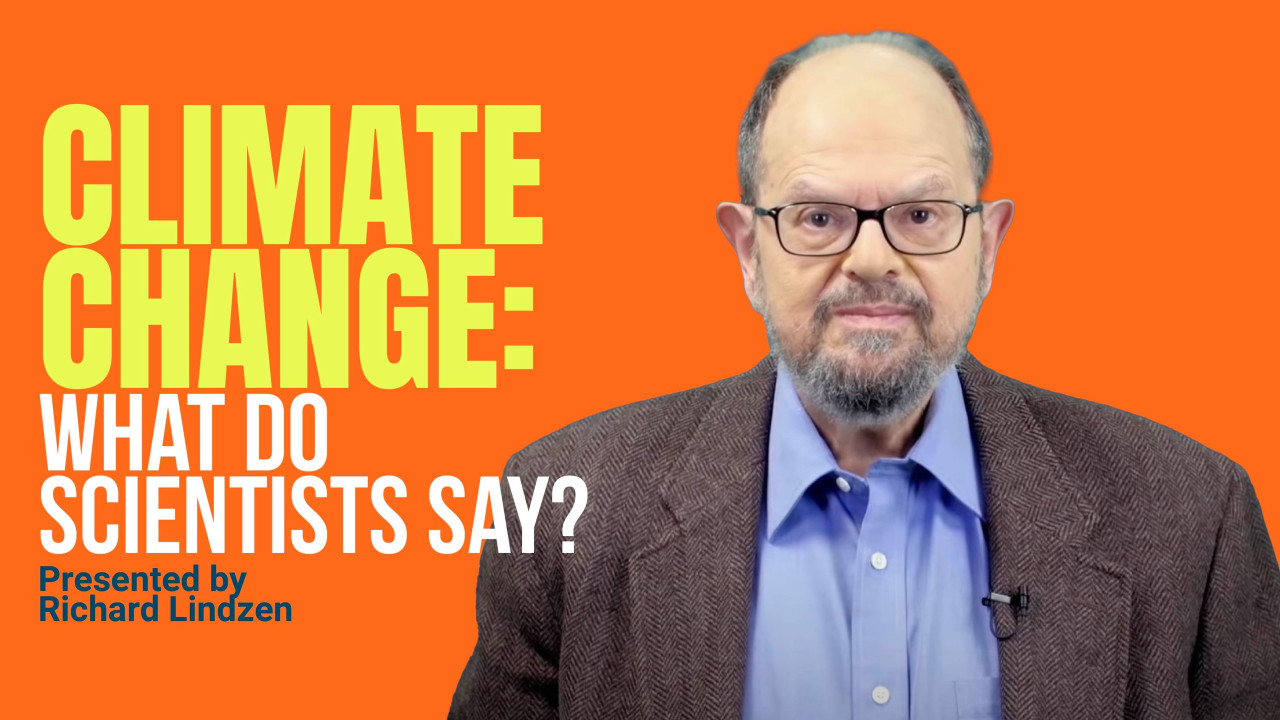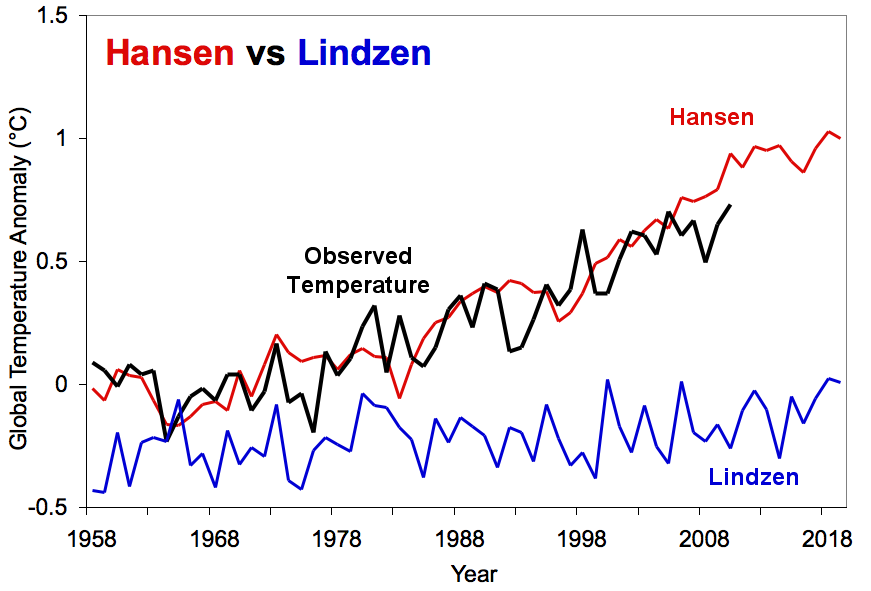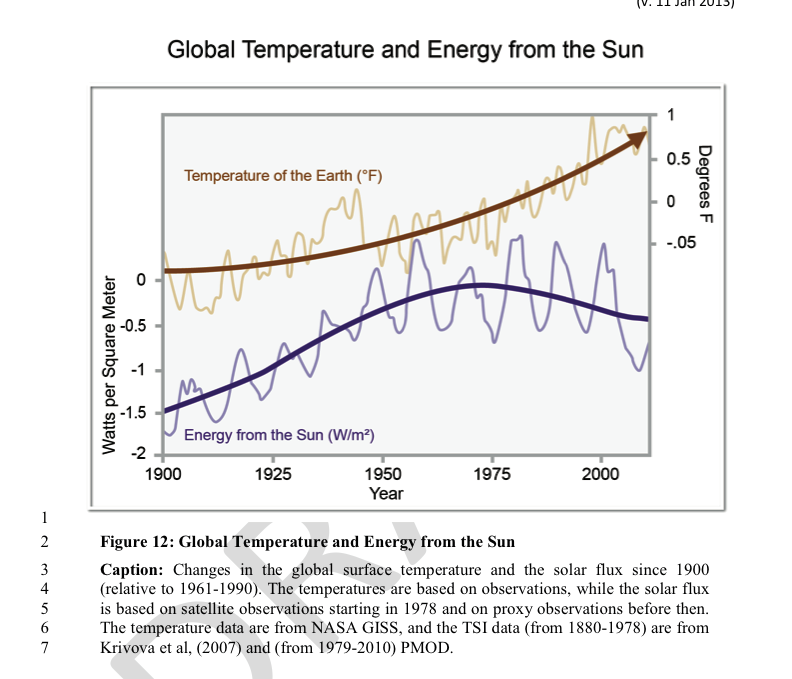I have never made nor heard of such a claim. If you think such a claim has been made, YOU find the scientists and the study.
I'm not here to make your case for you. That would be YOUR job. I won't wait.
I'll watch your link while you read mine:
https://www.ipcc.ch/report/ar6/wg1/downloads/report/IPCC_AR6_WGI_FullReport_small.pdf
So, did you pick up anything new from The Physical Science Basis?
I watched Lindzen's speech. I have had a low opinion of Lindzen for many years. Here are a few of the reasons why. From DeSmogBlog,
Search dated 06 March 2015:
Lindzen
charges oil and coal interests $2,500 a day for his consulting services; his 1991 trip to testify before a Senate committee was paid for by Western Fuels, and a speech he wrote, entitled “Global Warming: the Origin and Nature of Alleged Scientific Consensus,” was underwritten by OPEC.
Three skeptics—Lindzen, Michaels, and Balling—
were hired as expert witnesses to testify on behalf of Western Fuels Association, a $400 million consortium of coal suppliers and coal-fired utilities.
Lindzen makes the tired and debunked claim that predictions of warming haven’t been accurate. This is absurd on its face, as 2014 was the hottest year on record, with an unprecedented spike in
ocean temperatures. Peer-reviewed studies have shown that model criticisms are totally “
unfounded” and that models incorporating the newest information (mainly ocean heat content) are
very accurate. Interestingly,
comparisons have been made between Lindzen’s 1989 predictions and those made in 1988 by James Hansen, former director of NASA‘s Goddard Institute for Space Studies. The results are clear that mainstream scientists have gotten it right while Lindzen underestimated warming.
Solar output has decreased as temperatures rise
Lindzen vaguely refers to studies on the role of the sun in driving climate, which is exactly the subject that fossil fuel interests paid Soon to pursue. This is another absurdity, because the amount of energy the sun has sent our way in recent years has actually decreased as temperatures have increased.
More clouds won’t offset warming
Lindzen also refers (without citation) to his hypothesis that clouds will cancel out warming. What he doesn’t note is that this “Iris hypothesis” has been
debunked numerous
times, and while cloud behavior is an ongoing area of study when it comes to climate models, clouds may
actually increase warming, not offset it as he claims.
$1.2 million is no “small measure” of funding
Soon took over a million dollars from fossil fuel interests in exchange for studies which cast doubt on the CO2-climate change connection in both academic papers and congressional testimony. Soon’s contracts went so far as to give funders early access to papers and an explicit agreement to keep the funding relationship secret. Soon told his funders that these activities were “deliverables” yet he failed to disclose this critical fact in the papers. This is as serious as it comes in terms of breaching academic ethics, and has also
triggered an internal investigation at Soon’s employer.
Congress should know who’s sponsoring testimony
Lindzen attempts to redirect attention away from the clear wrongdoing of Soon to the actions of Arizona Rep. Raul Grijalva, who sent letters to seven universities inquiring as to the funding of other witnesses used by the GOP to argue against climate action. As Grijalva states
in his letters, this information is vital to disclose because Congress “cannot perform our duties if research or testimony provided to us is influenced by undisclosed financial relationships.”
Finally, Lindzen ends with one of the newest fossil fuel talking points, which claims that reducing emissions will somehow hurt the poor. This too is clearly contradicted by the fact that the poorest are
least capable of adapting to a changing climate, and those who are actually bringing power to the impoverished are doing so with renewables, not fossil fuels. For example, India’s Prime Minister has a
goal to bring electricity to all of India using renewables, not fossil fuels.
Finally, Lindzen ends with one of the newest fossil fuel talking points, which claims that reducing emissions will somehow hurt the poor. This too is clearly contradicted by the fact that the poorest are
least capable of adapting to a changing climate, and those who are actually bringing power to the impoverished are doing so with renewables, not fossil fuels. For example, India’s Prime Minister has a
goal to bring electricity to all of India using renewables, not fossil fuels.





